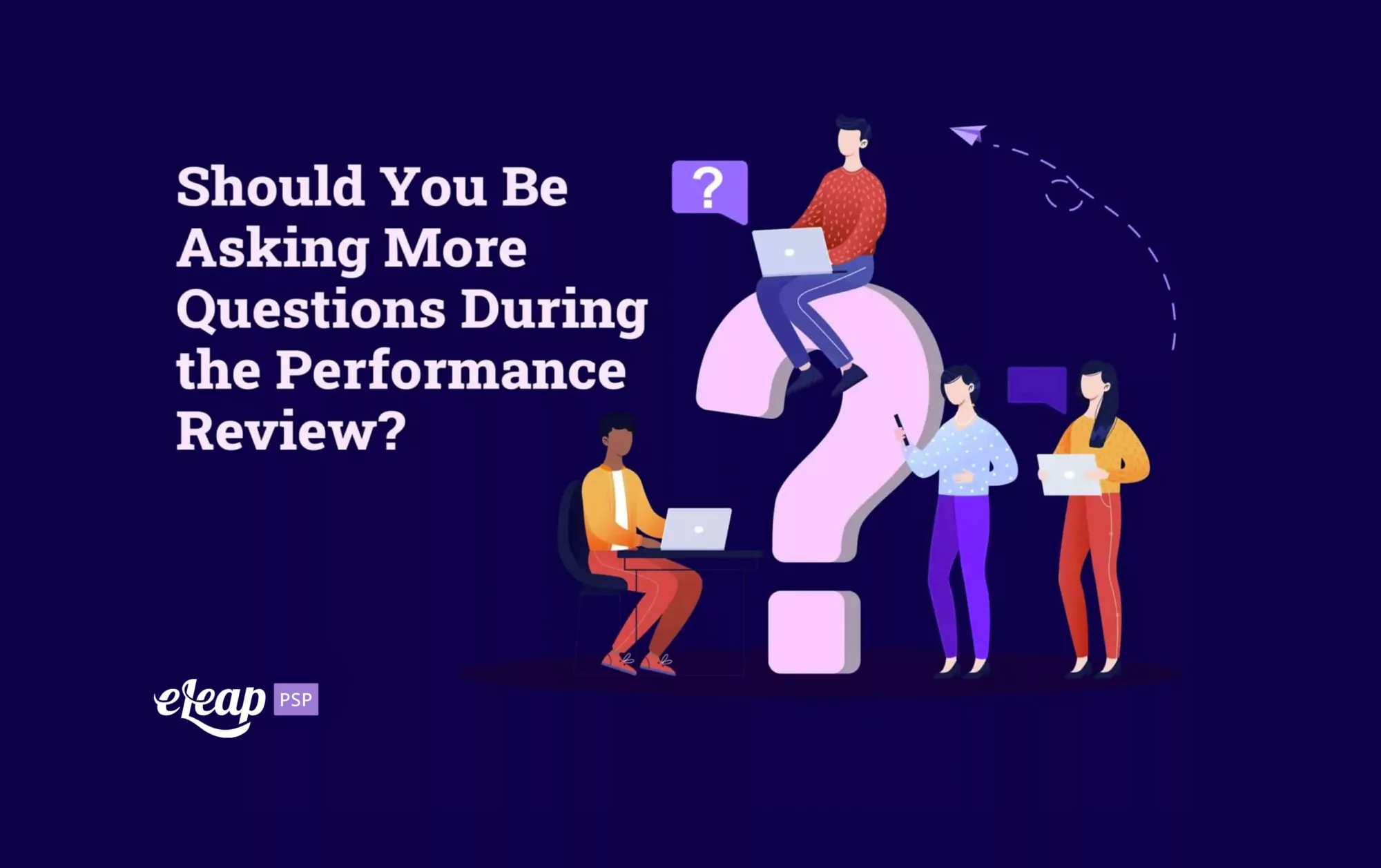Should You Be Asking More Questions During the Performance Review?

One major portion of the performance review process is the employee self-review. This gives you an idea of how grounded employees are in their performance and how strong their ability for self-reflection is.
Understanding these traits will give you a general idea of how well this employee receives constructive criticism, which in turn gives you the best course of action for communicating areas of improvement. Normally, you’ll see these common questions on a self-review:
- How well does my company recognize what I bring to the table?
- What affects my chances of performing at my best the most often?
- What areas do I perform well in at work?
- What are some ways I can improve?
No matter how far performance management and the review process have evolved, it seems that these four questions have been in rotation since the beginning of time. And while we must admit they are very telling; this begs the question – should you be asking employees more or different questions during the performance review and the self-review?
Management usually receives the same set of questions with the wording changed to evaluate the employee.
If you’re not aware of the topic or process of performance management, you wouldn’t know how many questions can be worked into the review and self-review process. This begs the question, should companies be asking more questions?

Should You Be Asking More Questions?
While asking only these core four questions keeps the review process simple, wouldn’t it benefit organizations more to ask more questions? These are some of the things you should be asking when you review employee performance.
Why would you limit company and employee growth by keeping things this simple? Performance Reviews have been around since Henry Ford started asking his team what they thought about his cars after they manufactured them.
While some companies continue this basic model, most have moved on from that type of review to performance management. Performance management is used to assess an employee’s performance against goals and expectations throughout each stage of his or her work lifecycle. The traditional review process has many challenges, but maybe not enough questions are asked during the self-review and face-to-face interview.
Below are some examples of what you could be asking your team members during the review process. These could end up making your entire strategy more efficient and beneficial for both employees and the company.
Asking the Right Questions
The following examples are what we think are the most appropriate questions to ask that will give you the most insight regarding employee development and improvement. Additionally, these will also help you gauge employee satisfaction, a growing performance management trend.
Longer History
“How have the past few years been for you at (company)?”
Asking this question allows you to gain valuable insight into how the employee feels about their overall tenure with the company. This has several significant benefits:
- Gain a broader perspective of how the employee feels regarding the company’s evolution. This can give you a better idea of how their goals align with the company’s general direction.
- It gives you an idea of how the employee has progressed within your organization. Has their attitude improved? Gotten worse? This fulfills the element of employee satisfaction.
- This will also give you a look into how the employee has fit into corporate culture. Can they identify elements of your company’s culture? You’re likely to get a general idea of exactly where they stand in this regard.
Personal Elements
“Have you achieved any personal growth?”
This can be a very effective and important question to ask. It gives employees the sense that the compassion of your company extends far beyond the office walls. With this question, you can accomplish the following:
- Gain an understanding of how the employee feels about how remaining with your company has benefited them. This goes along with employee satisfaction, as well.
- Asking this may also help boost employee retention. If the overall response to this question is positive, chances are employees value their time with your organization and believe remaining there has advantages.
Future Strategy/Improvement
“What was your top success strategy?”
This question has a lot of value to it regarding how much the employee has learned during his time with your company. Most likely, the answer will include a strategy that’s commonly used throughout the organization. This can pay off in several ways.
- Gives you an idea of what training methods and strategies employees prefer the most and which ones are most effective. You’ll gain insight into what skills they are harnessing the most.
- This allows you to continue to implement these same strategies and build on them.
Personal Opinion
“If you could go back and do one thing different at the company, what would it be?”
This question requires some serious thought from your employees. Honestly, it’s a difficult question to answer. However, there’s a lot to gain from asking this question, and it allows you to learn a lot about the employees who answer them.
- This question secretly demonstrates what areas employees feel like they can show improvement in. The majority of employees aren’t going to answer critically about the company, so normally you’ll get an answer regarding how they felt they could have performed or reacted better in certain situations.
- You may receive insight on what things can be improved in that employee right now. However, that’s not really what this question is looking to uncover.
- Honestly, what you’re looking for here are ways the company can improve onboarding and employee preparation. You’ll find out what areas you’re ignoring when it comes to employee development.
By adding these types of questions to your performance review process, you’ll gain a substantially higher amount of information than just using the basics. Three or four simple additions can open up new avenues and allow the company and employees to grow together. This facilitates better production, higher retention, increased employee satisfaction, and better employee/manager relationships. The eLeaP continuous performance management system provides organizations with powerful options to attract and retain high caliber team members.